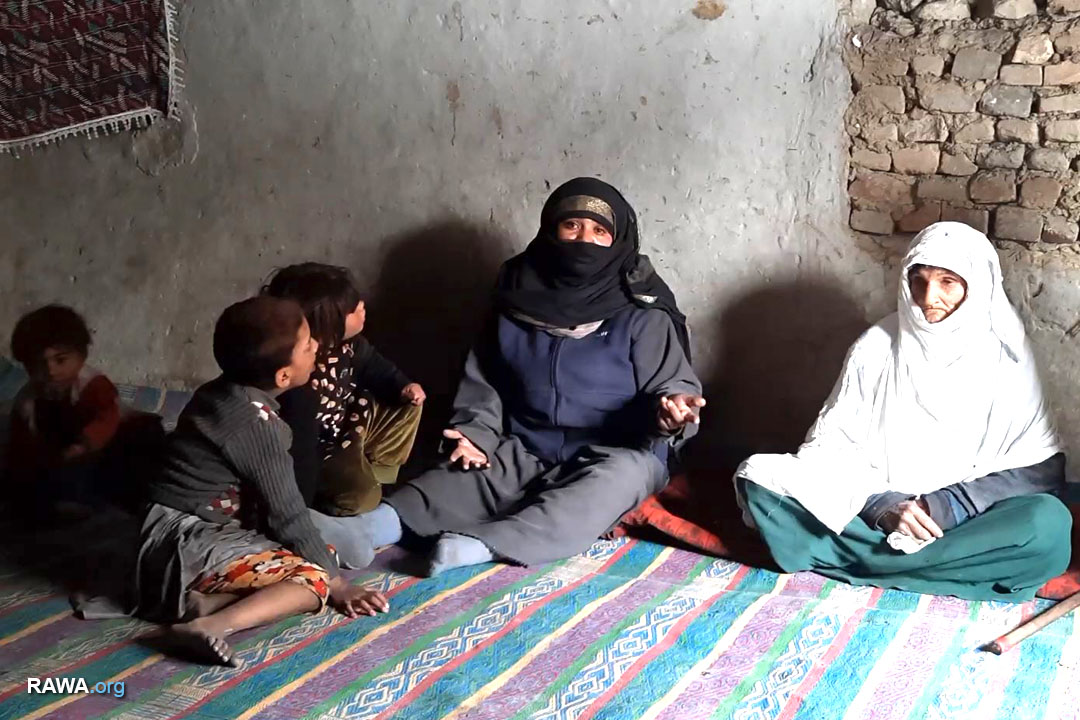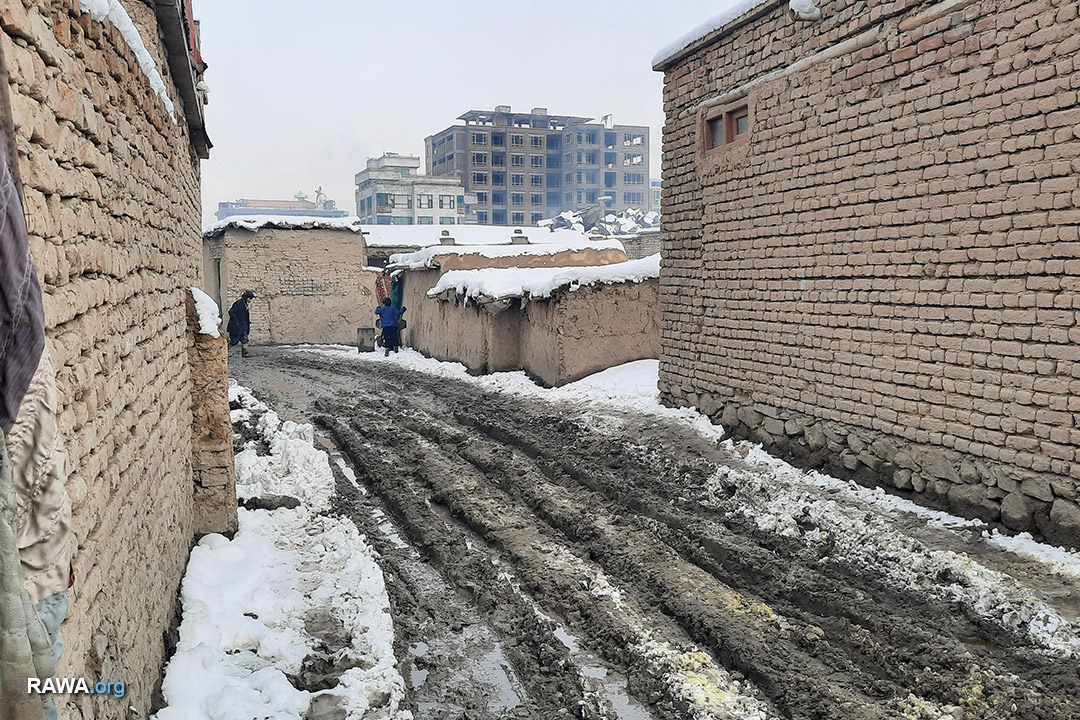
The woman (name protected) shown in the photo is in her 40s and belongs to Chahrdara village of Kunduz province in the northern Afghanistan.
Four years ago (2017) when heavy infighting was going on between Ghani government and Taliban rebels in Kunduz, the family escaped the area hoping to build a safer and better life for their children in the capital.
Nevertheless, like thousands of other miserable Afghans who became victims of insecurity in Kabul, this family also faced a deep tragedy: she lost her husband in a suicide attack and due to nervous breakdown and a stroke, she became paralyzed in both legs.

As a young mother of five young children and no education or skills, she could not follow any treatment. Since then, she is on a wheelchair and trying to earn a living with her five children and her widowed, lonely and aged mother by begging on the streets seven days a week.
Her oldest daughter is 15 and is forced to stay at home to look after her grandmother and younger siblings. Her second child is her 12-year-old son whose duty is to carry his mother on his back everyday because their home is on a steep hill. The entire family live in a small, dark, damp rented room.
The woman complains that she is unable to earn enough or find some daily wage job for her son after the Taliban took over. She is earning less than 1 US dollar a day which is not even enough to buy bread.
She is also worried that if Taliban stop her from leaving her home without a male relative (Mahram), what will happen to women like her?

She lives in suburbs of Kabul in a poor neighborhood



